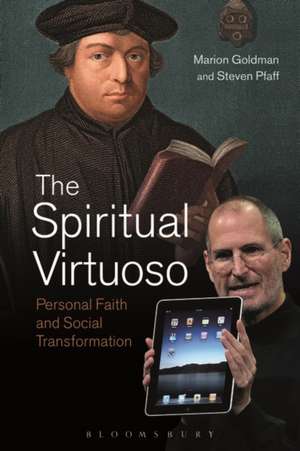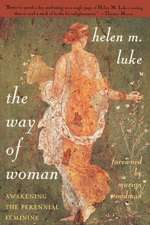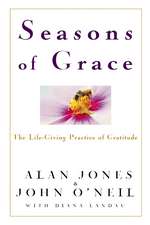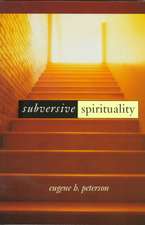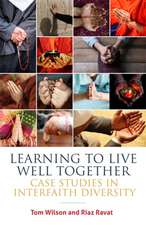The Spiritual Virtuoso: Personal Faith and Social Transformation
Autor Marion Goldman, Steven Pfaffen Limba Engleză Hardback – 13 dec 2017
| Toate formatele și edițiile | Preț | Express |
|---|---|---|
| Paperback (1) | 178.22 lei 3-5 săpt. | |
| Bloomsbury Publishing – 13 dec 2017 | 178.22 lei 3-5 săpt. | |
| Hardback (1) | 539.18 lei 6-8 săpt. | |
| Bloomsbury Publishing – 13 dec 2017 | 539.18 lei 6-8 săpt. |
Preț: 539.18 lei
Preț vechi: 689.24 lei
-22% Nou
Puncte Express: 809
Preț estimativ în valută:
103.17€ • 108.01$ • 85.37£
103.17€ • 108.01$ • 85.37£
Carte tipărită la comandă
Livrare economică 05-19 aprilie
Preluare comenzi: 021 569.72.76
Specificații
ISBN-13: 9781474292405
ISBN-10: 1474292402
Pagini: 216
Ilustrații: 40 bw illus
Dimensiuni: 156 x 234 mm
Greutate: 0.48 kg
Ediția:HPOD
Editura: Bloomsbury Publishing
Colecția Bloomsbury Academic
Locul publicării:London, United Kingdom
ISBN-10: 1474292402
Pagini: 216
Ilustrații: 40 bw illus
Dimensiuni: 156 x 234 mm
Greutate: 0.48 kg
Ediția:HPOD
Editura: Bloomsbury Publishing
Colecția Bloomsbury Academic
Locul publicării:London, United Kingdom
Caracteristici
Questions the inevitability of secularization and argues that the decline of organized religion is in fact an extension of spiritual virtuosity, and the quest for unmediated sacred relationships
Notă biografică
Marion Goldman is Professor Emeritus of Sociology and Religious Studies at the University of Oregon, USA and Scholar in Residence at Portland Center for Public Humanities. In six books and many articles, she explores intersections of spirituality, gender, and society. Steven Pfaff is Professor of Sociology at the University of Washington, USA. His interdisciplinary articles consider religion, social movements, and collective behaviour. Exit-Voice Dynamics and the Collapse of East Germany won the European Academy Prize for Best Book and the Social Science History Association President's Award.
Cuprins
Acknowledgments List of Illustrations1. Introduction: Spiritual Virtuosity2. Virtuosity and Spiritual Privilege3. Virtuosi and Collective Action4. Luther and the Virtuoso Ethic5. Grimke, Weld, and the Antislavery Movement6. Corita and the Human Potential Movement7. Conclusion: The Future of VirtuosityBibliographyIndex
Recenzii
This is a valuable book in its linking of spiritual virtuosity with movements for justice. The notion of a spiritual activist is a useful one, and students of both social movements and religious history will find much to learn here.
[Goldman and Pfaff] bring considerable expertise in both New Religious Movements and social activism to this study.The Spiritual Virtuoso does do the important work of excavating the history of some current religious and cultural circumstances.
The modern era has been deeply shaped by the idea that deep spiritual commitments are important for everyone and not just for religious specialists. This drove the Protestant Reformation, the rise of movements to make the world more moral, and even the modern Western idea of personality. Yet it is a theme too often neglected by social scientists. In The Spiritual Virtuoso Goldman and Pfaff do a superb job of showing the centrality and material importance of this cultural shift. Their book should have wide influence.
The Spiritual Virtuoso is a sociological tour de force, careening across centuries and religious traditions to show how charismatic visionaries shape social movements, technological innovation and spiritual change. Marion Goldman and Steven Pfaff connect the dots from Hildegard of Bingen to Cat Stevens, from the LSD-inspired Zen aesthetic of Steve Jobs to the Protestant Reformation of Martin Luther.
This creative, fresh and insightful work on spiritual virtuosity demonstrates that the quest for personal spiritual fulfilment can be political, effecting widespread social change and global transformation. Goldman and Pfaff effectively displace dismissive narratives of individualism by carefully mapping how personalized religion places ethically authentic living at its center and in the process contributes to collective and societal good. This book is essential reading for those seeking to understand the rapid and dramatic shifts in contemporary religion.
[Goldman and Pfaff] bring considerable expertise in both New Religious Movements and social activism to this study.The Spiritual Virtuoso does do the important work of excavating the history of some current religious and cultural circumstances.
The modern era has been deeply shaped by the idea that deep spiritual commitments are important for everyone and not just for religious specialists. This drove the Protestant Reformation, the rise of movements to make the world more moral, and even the modern Western idea of personality. Yet it is a theme too often neglected by social scientists. In The Spiritual Virtuoso Goldman and Pfaff do a superb job of showing the centrality and material importance of this cultural shift. Their book should have wide influence.
The Spiritual Virtuoso is a sociological tour de force, careening across centuries and religious traditions to show how charismatic visionaries shape social movements, technological innovation and spiritual change. Marion Goldman and Steven Pfaff connect the dots from Hildegard of Bingen to Cat Stevens, from the LSD-inspired Zen aesthetic of Steve Jobs to the Protestant Reformation of Martin Luther.
This creative, fresh and insightful work on spiritual virtuosity demonstrates that the quest for personal spiritual fulfilment can be political, effecting widespread social change and global transformation. Goldman and Pfaff effectively displace dismissive narratives of individualism by carefully mapping how personalized religion places ethically authentic living at its center and in the process contributes to collective and societal good. This book is essential reading for those seeking to understand the rapid and dramatic shifts in contemporary religion.
